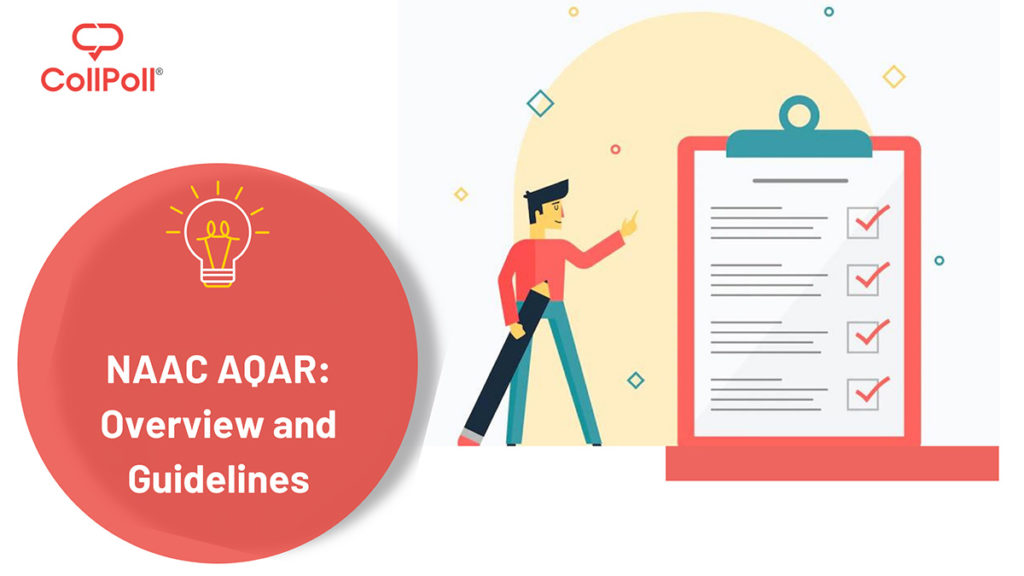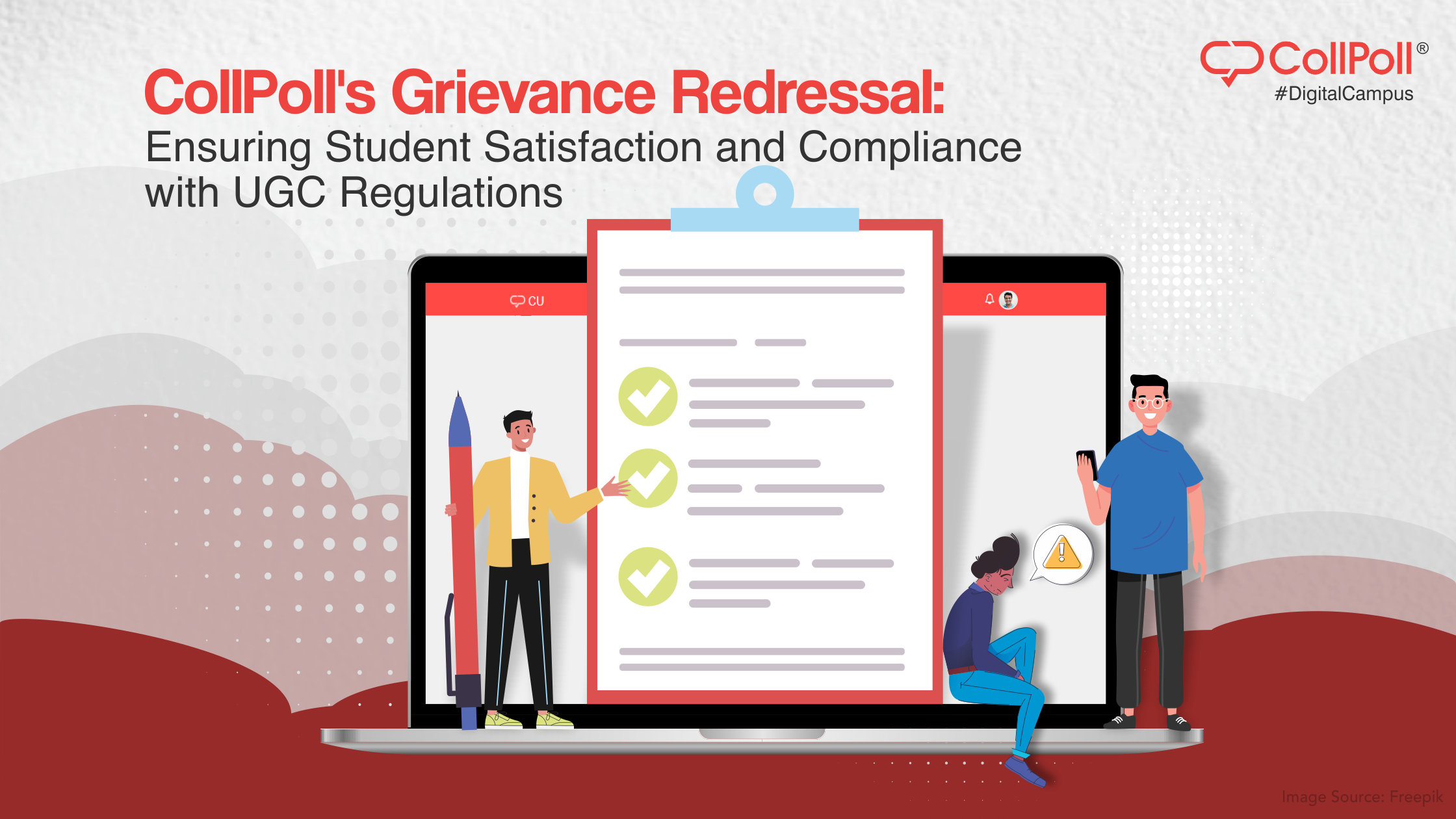NAAC AQAR: Overview and Guidelines
National Assessment and Accreditation Council (NAAC) is a UGC-funded organisation that regulates the assessment and accreditation of higher education institutions based on set norms and criteria. To execute its action plan for assessment, evaluation, and quality up-gradation of HEIs, NAAC recommended that every accredited institute must set up an Internal Quality Assurance Cell (IQAC) as a quality sustenance measure. This would enable colleges and institutions to improve their overall performance and work more efficiently toward their goals of enhancing the quality of education.
What is AQAR?
The Annual Quality Assurance Report (AQAR) is a mandatory annual report that all accredited HEIs must submit to NAAC as per the authorised format. AQAR NAAC report is a highly-useful document consisting of detailed information that shows results achieved in all the crucial areas that were recognised by the IQAC at the beginning of the academic year.
Guidelines for AQAR Submission
The basic information of the NAAC accredited institutes which needs to be mentioned in the AQAR NAAC report includes:
- Name of the Head of the institution
- Designation
- Does the institution function from its campus?
- Phone number/Alternate phone number/Mobile number
- Registered email, alternate email address, followed by the physical address of the institution
- Institutional status should be mentioned wherein the University could be
- State/Central/Deemed/Private, then the type of institution which could be
- Co-education/Men/Women
There are other questions as well related to the financial status, contact details, etc., which must be answered accordingly.
Going forward, HEIs must fill out the accreditation details, such as grade, cycles, CGPA, year of accreditation, validity period, etc. Institutions must submit the report within the stipulated time and can opt for online submission if needed.
AQAR – CRITERION 1: Curricular Aspects
- Curriculum Design and Development
It includes preparing the syllabus and revision for the programs during the academic year. Rather than prioritizing bookish knowledge, the courses should focus on honing the skills of students, which opens better employment opportunities. - Academic Flexibility
The institutes must be flexible while introducing new courses and assessment strategies in the academic year. Also, they must implement a Choice-based Credit System or Elective Course System at the university level. - Curriculum Enrichment
The overall curriculum must focus on fostering life skills and include field projects and internships. - Feedback System
Feedback is a key element of the AQAR report as it provides detailed and structured evaluation from all the stakeholders, including students, teachers, parents, alumni, and employers.
AQAR – Criterion 2: Teaching-Learning and Evaluation
- Student Enrollment and Profile
Includes the number of students enrolled, the name of the program, the number of available seats, and the number of applications received for a particular program. - Student – Full-Time Teacher Ratio (Current Year Data)
The total number of students enrolled for undergraduate and postgraduate degrees along with the number of full-time teachers who teach at PG and UG levels or both. - Teaching-Learning Process
This component of an ATAR report includes teachers who use Information and Communication Technology, LMS, and e-learning resources to make their teaching more effective. It also comprises a detailed analysis of the Students’ Mentoring system in the institution. - Teacher Profile and Quality
The number of full-time teachers appointed during the academic year, the vacant positions, and faculty members with PhD. - Honours And Recognitions Received by Teachers
Teachers who received different honours, recognition, and fellowship, at state, national and international levels from government or a recognised body. - Evaluation Process and Reforms
The number of days between the last day of the semester and result declaration day, and the average percentage of students who complained about the evaluation process. - Student Performance and Learning Outcomes
Courses offered by the institute, their outcomes, and results must be displayed on the website of the institute. There should be a link with the program name, the number of students who appeared in the final exam and who passed the examinations. - Student Satisfaction Survey
A document that summarizes the overall performance of the HEI and provides the results and other details.
AQAR – CRITERION 3: Research, Innovations & Extension
- Promotion of Research and Facilities
Details of the awards and fellowships given to teachers for their contribution to research and studies during the academic year. - Resource Mobilisation for Research
Types of research conducted, funds sanctioned & received by any organisation. - Other Components Are–
- Innovation Ecosystem
- Research Publications and Awards
- Consultancy
- Extension Activities
- Collaborations
AQAR- CRITERION 4: Infrastructure & Learning Resources
- Physical Facilities
This AQAR parameter includes allocated budgets for infrastructural facilities, classrooms, seminar halls, laboratories, LCD facilities, Wi-Fi/ LAN, ICT facilities, and video centres. The section considers the library as a learning resource and includes reference books, journals, textbooks, e-books, e-journals, etc., followed by the technology upgrade process. - Maintenance of Campus Infrastructure
Institutional website link to a content of 500 words describing the procedures and policies to maintain and utilise the infrastructural facilities of the institute, such as computers, classrooms, sports complexes, etc.
AQAR- CRITERION 5: Student Support and Progression
- Student Support
Different kinds of support and assistance are provided by the HEI to students.- Scholarships and financial support from college
- Financial support by other agencies
- Number of capability enhancement schemes initiated, including personal counselling, soft skills development, etc.
- Most beneficial schemes for students during the preparation for a government exam and the number of benefited students
- Remedial measures are taken to address student grievances, such as sexual harassment and ragging
- Student Progression
Details of campus placements during the academic year, including the information on the students progressing into higher education. Also, data of students who qualified for the state, national and international level examinations. - Student Participation and Activities
This section of the AQAR report mentions the number of awards and medals received by students for their performance in sports and cultural activities at the national and international levels.
AQAR- CRITERION 6: Governance Leadership & Management
- Institutional Vision and Leadership
Description of decentralization and participatory management practices at different levels within five hundred words. - Strategy Development and Deployment
Improvement strategies adopted by the educational institution for:- Curriculum development, examination & evaluation, teaching & learning, library, ICT and physical infrastructure, human resource management, industry collaboration, students admissions, etc.
- Other components included in this space are faculty empowerment strategies, financial management, and resource mobilization followed by the Internal Quality Assurance system.
AQAR- CRITERION 7: Institutional Values & Best Practices
Practices and policies that are implemented to ensure gender equality, sustainable energy initiatives, and environmental consciousness. It also covers details regarding facilities for differently-abled students.
Conclusion
AQAR provides precise details about the growth and performance of HEIs at academic and non-academic levels. This mandatory report highlights all the initiatives of institutions toward quality enhancement. Hence, ensuring that colleges work efficiently and dedicatedly on the listed seven criteria.
Taking care of the above-listed criteria is not a cakewalk and you need a centralized system that addresses all your concerns. CollPoll is AI-powered campus automation, digital learning and analytics platform that centralizes all the AQAR parameters and helps higher education institutions to submit timely reports.
For further information about our one-stop solution, get a Personalised Demo of CollPoll!





